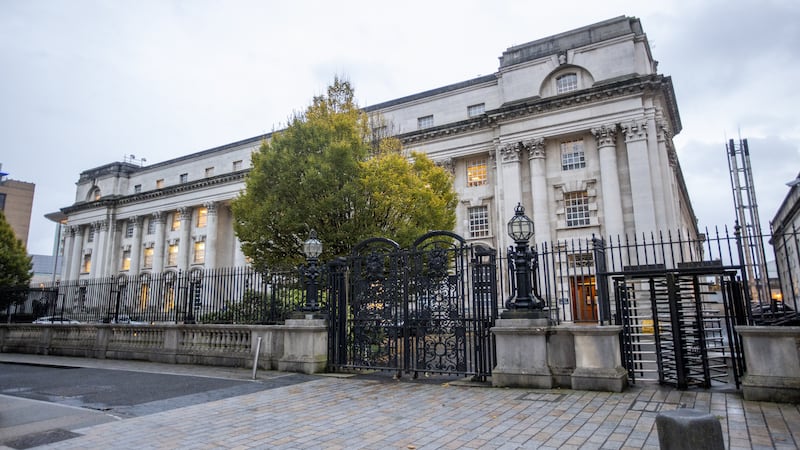A teenage asylum seeker from Iran who travelled alone on a small boat to the UK has secured High Court permission to challenge the Illegal Migration Act (IMA).
The 16-year-old boy, who is currently staying at a children’s home in Northern Ireland, was granted leave to seek a judicial review amid claims the controversial legislation breaches the Windsor Framework.
A judge in Belfast ruled on Tuesday he has also established an arguable case that parts of the IMA are incompatible with the European Convention on Human Rights (ECHR).
His solicitor, Sinead Marmion of Phoenix Law, hailed it as a significant decision for cases involving unaccompanied children in the asylum system.
As part of the Government’s attempts to stop migrants crossing the English Channel in small boats, anyone arriving illegally in the UK will be detained and removed under the terms of the IMA.
A separate High Court challenge to the Act mounted by the Northern Ireland Human Rights Commission is currently awaiting determination.
But proceedings brought on behalf of the Iranian teenager focused on the impact of the IMA on unaccompanied children.
The court heard he travelled through Turkey, Greece and France before getting on a small boat to the UK and claiming asylum in July last year.
He stated that he travelled by a dangerous route and is terrified of being sent back to Iran, claiming he would be killed or sent to prison.
Ms Marmion argued that the IMA could provide unaccompanied children in the asylum asylum system with an incentive to run away in a bid to avoid removal once they turn 18, driving them into the arms of exploiters and traffickers.
It was contended that provisions in the Act are incompatible with Article 2 of the post-Brexit Windsor Framework, which commits the UK not to diminish human rights safeguarded from the 1998 Good Friday Agreement.
Mr Justice Humphreys ruled: “It is clearly arguable that this applicant enjoys the protection of Article 2(1) of the Windsor Framework and can seek to rely on the rights enshrined in the various EU Directives, Regulations and the Charter in order to challenge the provisions of the IMA.”
The judge also held that the boy had cleared the preliminary stage in arguing the Act breached his rights under the ECHR.
Granting him the necessary legal status as a potential victim, Mr Justice Humphreys pointed out: “This applicant is at real risk of removal from the UK without his protection claim being determined.
“The evidence reveals that the UK Government intends to commence these provisions.”
He confirmed: “The applicant has clearly established an arguable case with realistic
prospects of success and there are no discretionary bars to the grant of leave.”
The application for judicial review will now be heard in full next month.
Welcoming the determination, Ms Marmion said later: “This is a significant decision in the journey to challenging the lawfulness of the Illegal Migration Act.
“We act for an unaccompanied minor, who are among the most vulnerable in society.”


